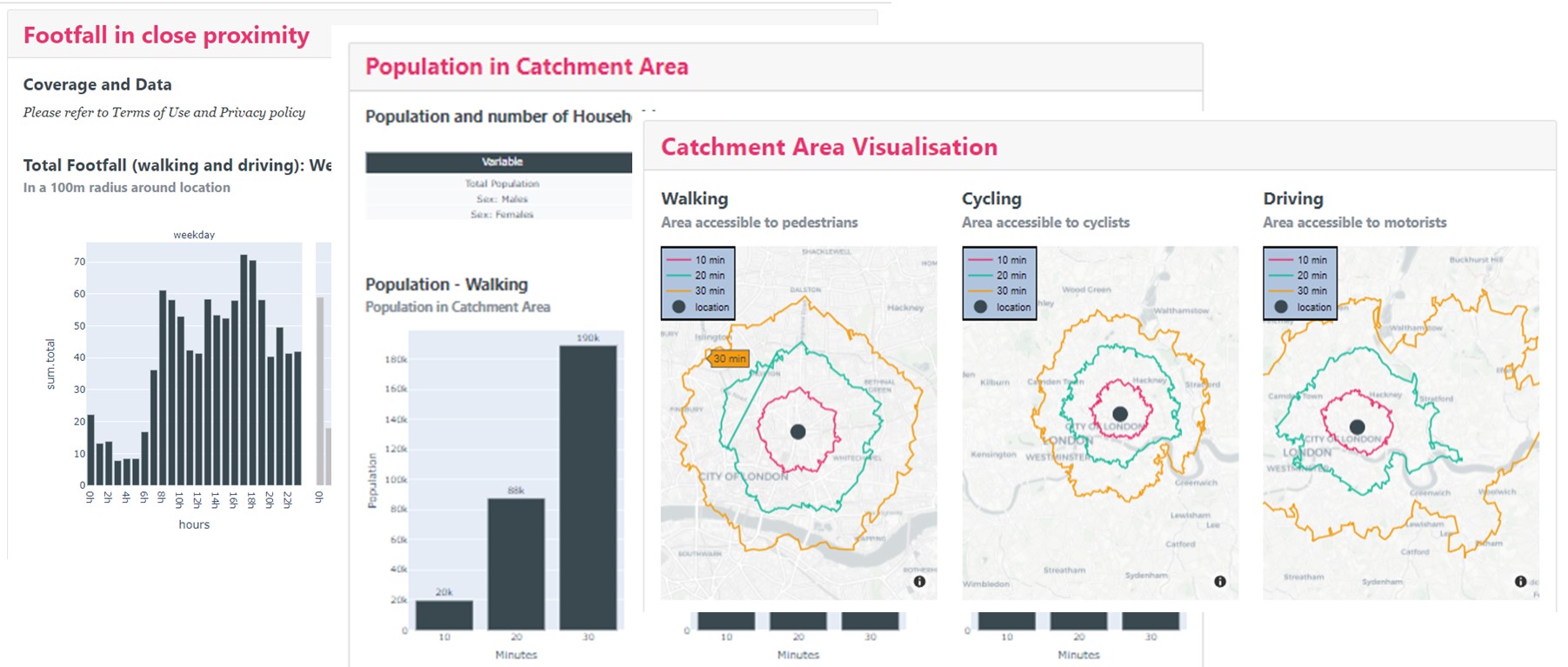Why and how to conduct a thorough local market research
- 2022, May 9th
- 4 min read

Guide: Why and how to conduct a thorough local market research before starting your business?
Check out our tips for carrying out effective local market research.
Local market research: definition
Market research allows you to understand your market, i.e., supply and demand.
Market research, whether quantitative or qualitative is usually presented in the form of a separate document containing all the information on the research and the project (positioning, target, and profiles of potential customers, etc.).
– Qualitative research: conducted with questionnaires or by questioning consumer groups, qualitative market research can be used to validate an idea or a concept and to collect direct feedback from customers. It can be conducted before the project, before its launch, or afterward to obtain feedback from customers to move the project in the right direction.
– Quantitative research: quantitative market research involves the collection of numerical data that will be used to develop the project’s business plan. It can focus on a specific geographical area, in which case it is called local market research.
-
Local market research allows you to measure, analyze and understand the elements that will have a direct impact on your future activity in a commercial area (market players, customer analysis, benchmark...).
-
Understanding the target market allows you to study the feasibility of a project in a geographical area and validate its positioning. It is an essential step in the construction of a business plan and the definition of a commercial strategy.
Why conduct local market research?
The 6 best reasons to conduct local market research
-
1. Determine the size of your potential local market
What is your catchment area? How many potential future customers are in the area? What is the traffic in the area?
-
2. Know your competitive environment
Who are your direct and indirect competitors and how are they located? What are the other companies present on the market? What are the facilities nearby?
-
3. Refine your projections and your business plan
By refining your hypotheses, you will be able to better evaluate your potential and your projections will be more reliable. You will be able to estimate your projected turnover more accurately.
-
4. Reassure your bank and/or your investors
A serious and well-documented local market research will allow you to fine-tune your business plan and thus complete your bank and/or investment file in order to increase your chances of success in the market.
-
5. Confirm a commercial location
You have found the premises of your dreams, but is the environment adapted to your project? What is the commercial attractiveness of your location? Note: your local market research can also be a starting point for negotiating your commercial lease.
-
6. Define your commercial and marketing strategy
Thanks to your local market research, you will be able to precisely define your local commercial strategy and possibly identify the main trends and new opportunities to differentiate yourself from your main competitors.
What is the difference between a local market report (ELM) and market research?
In France, according to the “loi Doubin” (article L330-3 of the Commercial Code), a franchisor must provide his franchisees with “a presentation of the general and local state of the market for the products or services to be covered by the contract and the prospects for the development of this market.”
A local market report is a summary of the various information on a commercial area. It presents a snapshot of the market in a given geographical area, bringing together the key figures that make it possible to establish its size, the type of clientele, the competitive environment, etc. It must be given to the franchisee as part of the PID (Pre-contractual Information Document).
A local market report is a collection of raw data, unlike market research where the analysis of the data and information collected allows the research to be adapted to a particular activity sector and project.
When should you conduct local market research?
-
At the beginning of your project
You already have an idea, a concept, and sometimes even an idea of the location of your future project. Local market research is an essential step in the process of starting a business and launching a new activity. Formalizing your project, and gathering information on your market, will allow you to minimize risks before investing in a physical sales outlet, for example. It should be used to complete your business plan and therefore should be carried out beforehand. Research results can also be used to identify new markets and new business opportunities.
-
After running your business for a while
Once your business is launched, it may be useful to conduct local market research in order to follow the trends in your area (population movements, variations in traffic, new competitive environment...). The local market research will then help you to refine or redefine your commercial strategy and always be at the forefront.
Methodology: data to include in your local market research
Building local market research implies a thorough geo-marketing analysis of the area.
Just like the local market report, local market research is based on three types of information:
-
The size and attendance of the catchment area where the business is located
What zone is covered within the catchment area? What is the traffic by foot or by car in the area?
-
Socio-demographic data: customer profile and demographic characteristics of the population in the vicinity
Customer profile and demographic characteristics of the population in the vicinity
-
The competitive environment
Which other businesses and amenities are located in the area

Where to find the data to conduct your local market research?
A lot of data, from different sources, is available free of charge, such as census data from INSEE in France.
Tools such as Google maps also allow you to quickly explore an area and the businesses in the vicinity.
If it is possible to find foot traffic data for the main shopping areas, it will be difficult to obtain foot traffic data for a specific location without using a service provider or a people counting solution.
Finding quality data, i.e., reliable, up-to-date, and comparable can quickly turn out to be an uphill task and a major waste of time.
There are geomarketing tools specialized in location studies, such as the Symaps platform. The data, compiled on a single interface, is then easily accessible and usable for your local market research.
For less than a hundred euros, you can get a detailed report, with all the necessary data, for any location.
For franchises, it is the ideal solution to edit complete local market reports in no time.
How to get local market research?
Three questions to wrap up
Question 1 : Why conduct local market research?
Setting up a business in a new location is a major investment, both in terms of the amount of money involved and the time spent on it.
Before taking the plunge, it is essential to assess the attractiveness of a location with regard to the type of business you wish to set up there. Knowing the catchment area, the profile of your future customers and their habits, obtaining data on the number of visitors to the area, the competitive environment and the nature of the market are all elements to be taken into account in order to estimate your projected sales and maximize your chances of success before setting up your business in the market.
Question 2 : What is included in local market research?
Local market research synthesizes the analysis of the results of the local market report and determines the feasibility of a venture in a given location.
Local market research includes the different catchment areas around a given location. It must also include information on the target customers (profiles, habits, socio-demographic data on the population in the vicinity), as well as foot and/or car traffic data (e.g., how many people pass by per day and per hour) and on the competitive environment.
By sifting through these three parameters, you can gain an understanding of the local market and evaluate the commercial potential of a location. You will then be able to build your financial projections and determine whether or not your project is feasible at that location.
Question 3 : Is local market research mandatory?
Although local market research is not necessarily a mandatory document when setting up your business, it would be difficult to do without it before planning to set up your future business.
It is a preparatory step that allows you to fine-tune your business plan and make the right decisions to maximize your chances of success.
These elements are often requested in the framework of the constitution of your funding file for your bank for example.
Special case: in France, in the context of a franchise, the franchisor must provide its franchisees with a local market report, i.e., a picture of the market in a given commercial area. The local market report is an integral part of the PID (pre-contractual information document).
Share post